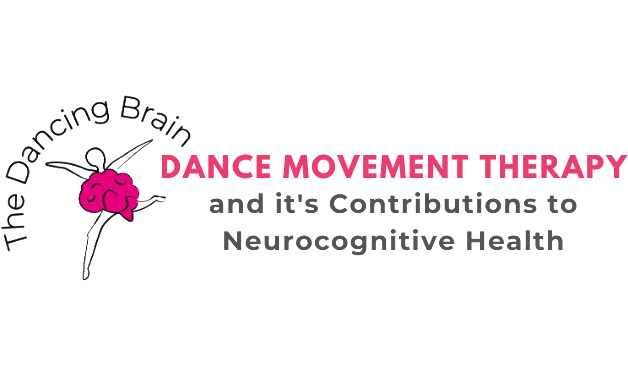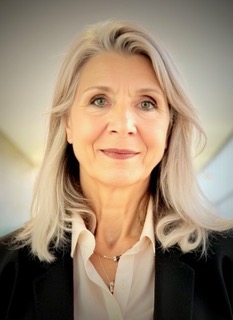Symposium ‘The Dancing Brain’ / Dance movement therapy and it’s Contributions to Neurocognitive health, Oct. 2021

Symposium ‘The Dancing Brain’
Dance movement therapy and it’s Contributions to Neurocognitive health
Saturday October 2nd and Sunday 3rd, 2021
Maastricht – Netherlands
The board members of the Dutch association (NVDAT), are happy to share with you the ins & outs of the upcoming symposium in in Maastricht, which is in the South of the Netherlands.
The symposium “The Dancing Brain” will take place prior to the EADMT General Assembly on Saturday October 2nd (all day) and Sunday 3rd (morning).
The GA will start after lunchtime.
We’re cooperating with the organisation of the ‘Dutch Dance Days‘ festival (DDD), which will be held from Sept 30 – Oct 7th in the same city. This is the first time an NVDAT dance therapy event takes place in cooperation with a big and important festival within the Dutch’ dance scene. As NVDAT we’re proud to be hosted by the DDD, as it is a huge step towards the acknowledgment and visibility of DMT in the Netherlands.
Due to the Covid-19 regulations, it will be a ‘hybrid’ symposium; parts will take place with live participants and will be streamed online, parts will be solely online.
The Dancing Brain
‘Dance Movement Therapy and Its Contributions to Neurocognitive Health’
Does dance influence the brain?
How can dance therapy contribute to the neurocognitive health of people with for example Acquired Brain Injury, Korsakov Syndrome and dementia?
What methods and instruments do dance therapists use when working with people with these neurocognitive challenges?
Filled with lively workshops and interesting presentations, by both national and international dance therapists, neuropsychologists and professors, this event is a source of knowledge about Dance Therapy in relation to Neurocognitive Health.
As keynote speakers we will welcome:
Dr. Beatrice Allegranti,
Italian-Irish award winning choreographer, Dance Movement Psychotherapist:
“Moving Kinship with the More-than-Human. Working with the entanglements of choreography, affect and the brain.”
Prof. Dr. Hedda Lausberg,
Dance therapist, Full Professor of Neurology, Psychosomatic Medicine, and Psychiatry at the German Sport University Cologne:
“Presenting BAST System, a diagnostic tool for the analysis of movement behaviour.”
Prof. Dr. Susan van Hooren,
Neuropsychologist, Endowed professor in Arts therapies and
full Professor in Clinical psychology
“The neuropsychology of expressive body movement: Moving to a stronger evidence base for dance movement theory with
neuroscience?”
There will also be 6 workshops for you to choose from!
See the attached program for more info.
We are looking forward to seeing you in Maastricht on Saturday 2nd and Sunday 3rd of October.
The NVDAT board – symposium.nvdat@gmail.com & the organisation committee
All info and program will be continuously updated online at: https://nvdat.vaktherapie.nl/the-dancing-brain

Dr. Marija Jakubauskienė is a public health expert, researcher and academic leader currently serving as the Minister of Health of the Republic of Lithuania. Dr. Jakubauskienė brings to the role more than two decades of experience in public health science, biomedical research, medical humanities and health policy development.
Dr. Jakubauskienė holds a PhD in Biomedical Sciences from Vilnius University, where she also earned advanced degrees in Business Administration and Entrepreneurship and Innovation Studies. She has held a number of senior academic positions, including Associate Professor and Director of the Institute of Health Sciences at Vilnius University’s Faculty of Medicine. Her leadership has extended to international engagement as Vice-Dean for International Affairs and Programmes and as a recognized lecturer, awarded Best Lecturer of the Faculty in 2023. Internationally, Dr. Jakubauskienė has played an active role in advancing public mental health through her contributions to the European Public Health Association (EUDHA), where she has served as President of the Public Mental Health Section and as a member of the International Scientific Committee. Her research interests included population health science, mental health, health system, policy research and medical humanities.
Since 2015 from the beginning of the Art Therapy Master study programme at Vilnius University Dr Jakubauskiene has been coordinating and teaching biopsychosocial health, clinical practice and ethics subject as well as supervising research projects of master students in Art Therapy. Dr Jakubauskiene has continuously contributed to the development of synergies in arts, culture and health ecosystem in Lithuania.
Keynote lecture: The Perspective of Arts Therapies within Integrated Care in Lithuania
Dance Movement Therapy is a pivotal element of art therapy practice and can play a significant role in supporting health and wellbeing of individuals in the aging and multimorbid society. Effectively addressing complex health needs remains a challenge for healthcare systems. Integrated care model aims to respond to these growing complex health and social needs in our societies. Expanding integrated care model by the approaches and tools of arts therapies may contribute to better health and wellbeing of patients and communities.
In Lithuania, arts therapies—including art, music, drama, and dance movement therapy—are formally integrated into the national healthcare system, supported by accredited master’s programs through collaboration between medical and arts institutions. These therapies are applied in diverse clinical and community contexts to support individuals with mental health conditions, chronic illnesses, trauma, and social exclusion.

Dr. Rosemarie Samaritter is a registered dance movement therapist and supervisor and an independent researcher. With more than 40 years of clinical experience she has built specific expertise in the application of DMT in complex trauma, personality disorders, neurodiversity and disorders with impaired sense of self.
As one of the pioneers of DMT in the Netherlands, she was involved in the development of the first BA training in dance therapy, now situated at Zuyd
University of Applied Sciences and the initiation of the dance therapy chapter of the Dutch Association of Creative Therapies, the predecessor of the current Dutch Association of Dance Movement Therapists (NVDAT). As an associate professor at Codarts University of the Arts Rotterdam, Rosemarie was involved in the Master ofArts’ DMT curriculum and conducted DMT related research. Currently, her specific research interest is in documenting DMT interventions from first-hand knowledge of DMT practitioners and develop systematic intervention descriptions. For severalyears, Rosemarie participated in the EADMT research chapter. She teaches, presents and publishes regularly on DMT theory, methods and research in the Netherlands and abroad.
Choreographies of Change, independent academic space for DMT:
http://www.choreographiesofchange.org
ORCID: https://orcid.org/0000-0001-7717-5712
Google scholar: https://scholar.google.com/citations?user=mljXpAcAAAAJ&hl=en
Keynote lecture: 15 years into European Association of Dance Movement Therapy: from co-creating a professional identity towards unfolding professional landscapes
With the upcoming conference, we will celebrate the 15th anniversary of the European Association for Dance Movement Therapy (EADMT), at a time when Dance Movement Therapy (DMT) is advancing in Europe and globally.
EADMT’s 5th conference revolves around three central themes: VISIBILITY – VITALITY – VISION.
With these themes and a range of related questions, EADMT has opened a broad horizon for participants to reflect on our profession and the various challenges for DMT in the professional field. Contributions to the conference reflect multiple perspectives informed by personal practices, national and international developments, and current societal, economic, and political contexts.
The keynote address will examine the integral role of the EADMT in co-creating a professional identity from various national traditions. The discussion will also explore how the current DMT landscape is relevant to contemporary questions and future directions for the European DMT community.
Over the past 15 years, the EADMT, in collaboration with numerous dedicated colleagues, has evolved into a systemic container for the European DMT community, where members find each other to advance the profession. However, several challenges persist, including:
– enhancing the professional profile of DMT
– articulating and showcasing DMT’s specific contributions to the mental health field
– adapting to changing societal contexts and challenges
– building budgets for professional development and research
The keynote address will explore how our artistic roots, clinical identities, and academic and philosophical foundations can enhance and vitalise our vision and visibility. We will discuss models from organisational aesthetics (Creed et al., 2020) that incorporate concepts such as resonance (Rosa, 2016) and aesthetic unfolding (Barrett, 2000). These models may be well-suited to develop comprehensive frameworks that promote sustainable structures for the European DMT community, helping us stabilise and expand our position within the Creative Arts Therapies (CATs) and in the broader context of health and well-being.
Christina Wintels, Romy Heitbrink, Daniel van Tour, Julia Morozova, Job Cornelissen
Soon to be announced
Due to the Covid-19 regulations, it will be a ‘hybrid’ symposium; parts will take place with live participants and will be streamed online, parts will be solely online.
The number of tickets for live participants is limited, so make sure you reserve your spot!
Click here to save your (online or live) spot: https://forms.gle/HWAQiAGK46WMfGxs7